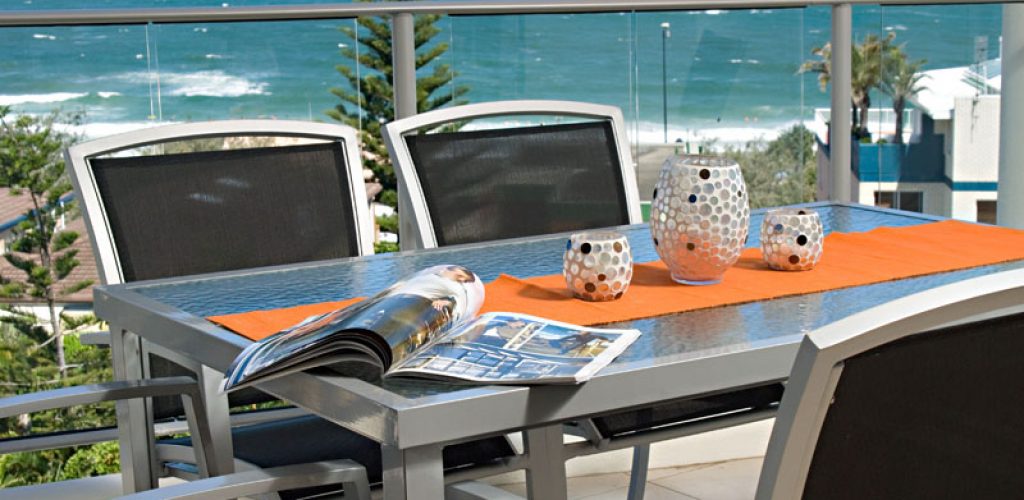As a property investor, it’s essential to understand the implications of capital gains on investment property when selling an investment property in Queensland. Capital gains is a tax levied on the profit made from the sale of an asset, including real estate.
In this comprehensive guide, we will explore the key aspects of CGT, its calculation methods, exemptions, and strategies to minimize your tax liability when selling an investment property in Qld
What is capital gains tax (CGT)?
According to the Australian Taxation Office, Capital gains tax is the tax imposed on the capital gain realized from the sale of an investment property. When you sell a property for a profit, the difference between the sale price and the property’s cost base is considered a capital gain. This gain must be declared on your income tax return.
To calculate your capital gain, subtract the property’s cost base from the sale price:
Capital Gain = Sale Price – Cost Base
The cost base of a property includes the purchase price, expenses related to the acquisition, and any improvements or renovations made to the property.

When is a property subject to capital gains tax?
In Queensland, a property is subject to capital gains tax when it is not your principal place of residence eg. it’s not your home and it is sold for a profit. This applies to rental properties, holiday houses, and other real estate assets that are generating income. It’s important to note that capital gains tax is payable regardless of how the sale proceeds are used or whether there is an outstanding loan on the property at the time of sale.
Turning your main residence into an investment property.
If you now plan to move out of your main residence and turn it into an investment property at the time you move, you must have the property valued. You can do this by engaging as a licensed valuer or you can use a licensed real estate agent that will do a sales appraisal. It’s important to know that a licensed real estate agent is not a valuer however it seems the ATO will accept a well-structured sales appraisal from a licensed real estate agent. The reason this is so important is that the capital gains tax when you decide to sell will be calculated on its value when it changes into an investment property.
For example. If you bought your main residence for $330,000. Then you move out and make it an investment and it’s valued at that time for $440,000. Then years later you sell it for $800,000 the capital gains tax is calculated on $800,000 – $440,000 = $360,000. If you are eligible for the 50% concession, which most people are. This is reduced to $180,000. Then if you own the property with your partner the capital gains tax is shared $90,000 each. So you are both taxed on the $90,000, which is added to your income tax return for that financial year.
Capital gains tax exemptions
A bit off-topic but if you speak to a financial planner they are all very focused on minimizing tax. You will see below there are strategies to ensure your tax can be reduced further.
But there are also pitfalls to making your principal place of residence an investment property. I won’t get into here but you should speak to your accountant about the loan structure and interest, plus other tax implications.
Depreciation report
You should also ensure you obtain a tax depreciation report, which you can read about in one of my other articles here
Capital gains tax shock
I’ve had clients ready to sell their investment property to then put a total stop to the idea once they realized how much Capital Gains Tax they needed to pay. This is why before any property investor rushes in with a sale they need to look into this closely. To understand what the implications are.
How to minimise paying capital gains tax when selling your rental property
Fortunately, there are exemptions and concessions available to property investors in Qld that can help minimize the amount of CGT payable. Let’s explore some of these strategies:
The main residence exemption
If the property you are selling is your main residence, you will be eligible for the main residence exemption. This exemption allows you to be exempt from paying capital gains tax on the sale of your main residence. To qualify for this exemption, you must have lived in the property as your main residence for the entire duration of ownership.
The capital gains tax 6-year rule
The capital gains tax 6-year absence rule allows you to treat your main residence as an investment property for up to six years after you move out. During this period, you can continue to generate income from the property by renting it out.
If you sell the property within six years, you may still be eligible for a partial exemption from capital gains tax. However, it’s important to note that no other property can be nominated as your main residence during this time.
The 6-month rule
If you have purchased a new home but have not been able to sell your old property, you may be eligible for the 6-month rule.
This rule allows you to treat both properties as your main residence for up to six months, providing you with additional time to sell the old property without incurring capital gains tax liability. Certain conditions must be met to qualify for this exemption.
The 50% capital gains tax discount
If you do not qualify for any of the above exemptions, you may still be eligible for the 50% capital gains tax discount. This discount applies if you have owned the investment property for at least 12 months before selling it.
The 50% discount is applied to the capital gain, reducing the amount of capital gains tax payable.
Moving into your investment property
One of Kath & my investment properties is a 3-bedroom apartment in Cotton Tree in Maroochydore.
It’s over 2 levels and the main bedroom has a parent’s retreat. Our long-term plan is that while it is an investment property now. When we retire we will sell our current principal place of residence and move into this apartment.
When we sell our current principal place of residence there will be no capital gains tax to pay, then we will retire into our apartment which will then become our principal place of residence.
How much is capital gains tax when selling assets?
The amount of capital gains tax payable depends on your taxable income for the year in which the property is sold. Capital gains tax is treated as part of your taxable income and is taxed at the same rate. The current capital gains tax rates for individuals in Australia can be found on the ATO website, which you can see here
As a simple example, using the ATO 2023 tax calculator.
If you earn $100,000 a year you will be taxed $23,000.
If in that financial year, you sold an investment property and your share of the Capital Gains was $100,000 it means your total taxable income for that year is $200,000. So the total tax you would pay is $61,000.
So you made a $100,000 profit on the sale but taxed $38,000 so your net profit is $62,000.
Of course, you need an accountant to confirm all this, as people’s situations differ.
To see for yourself you can use the ATO’s income tax calculator here
How to calculate capital gains tax
There are two primary methods for calculating capital gains tax: the capital gains tax discount method and the indexation method. The method you use depends on your eligibility for the 50% capital gains tax discount and the date of purchase of the property.
The CGT discount method

If you qualify for the 50% capital gains tax discount, you can use the capital gains tax discount method to calculate your tax liability. This method involves subtracting the property’s cost base from the sale proceeds, applying the 50% discount to the capital gain, and including the remaining amount in your taxable income.
The formula for calculating capital gains tax using the discount method is as follows:
Taxable Capital Gains = (Sale Proceeds – Cost Base) x 50%
For example, if your capital gain is $100,000 and you qualify for the 50% discount, your taxable capital gain would be $50,000.
If you have a job that pays you $100,000 a year. The $50,000 capital gains is added to your annual income giving you an annual income for that year of $150,000 and is taxed at the current taxable income rate.
The indexation method
If you purchased your investment property before 21 September 1999, you may be eligible to use the indexation method to calculate your capital gains tax liability. This method adjusts the cost base of the property by an indexation factor, which takes into account inflation during the ownership period.
To calculate your capital gain using the indexation method, multiply the sale proceeds by the indexation factor:
Capital Gain = Sale Proceeds x Indexation Factor
The indexation factor is calculated using the Consumer Price Index (CPI) for the quarter of the capital gains tax event and the CPI for the quarter when the expenditure occurred.
Other considerations for capital gains tax on the sale of an investment property
In addition to the calculation methods and exemptions, there are a few other considerations to keep in mind when it comes to capital gains tax on the sale of an investment property.
Intention
The ATO may review the sale of a property in hindsight to determine the intention behind the purchase. If it is determined that the property was always intended as a rental investment, it will be treated as such for CGT purposes.
More than one owner
If a property is jointly owned, capital gains tax is split between the owners based on their share of the property. If one of the owners has no other income in the year of sale, their capital gains tax liability may be lower.
Transfer of property
Capital gains tax rules apply regardless of whether the property is transferred to a relative or sold to someone at arm’s length. The market value of the property is considered the sale value, even if no money changes hands.
Capital gains tax on overseas properties
The same capital gains tax principles apply to properties purchased overseas. If the property was purchased as an investment while the homeowners were non-residents for tax purposes, the cost base will be the market value at the time they became residents of Australia.
Residency status
The residency status during ownership and at the time of sale can affect how capital gains tax is calculated and the eligibility for exemptions. It’s important to understand the residency requirements and seek professional advice if you have any doubts.
When is a good time to sell your investment property to minimize costs?
Property investing should be considered for the long term. The best time to sell an investment property is after you retire and you no longer earn any income and your only income for that financial year would be the Capital Gains income.
However, I realize property investors need to sell before then for many reasons.
If you are in that position the first step is to have a remote sales appraisal done so as not to concern your tenant or property manager then once you know the potential sale price, take this information to your accountant to find out how capital gains will affect you.
If you own an investment property on the Sunshine Coast Qld. I can do a free remote sales appraisal for you free of charge and usually fairly quickly.
You can also read more about selling your investment property here.

Key takeaways
Understanding capital gains tax when selling an investment property in Qld is crucial for property investors. By taking advantage of exemptions and concessions, adding applicable expenses to the cost base, and consulting with a property tax specialist, you can minimize your capital gains tax liability and maximize the value of your investment property. It’s essential to stay informed about the latest tax regulations and seek professional advice to ensure compliance and optimize your financial outcomes.
Remember, this guide provides an overview of general information and should not be considered as legal, tax, or investment advice. Seek professional advice for specific circumstances and consult with a qualified tax agent or financial advisor before making any decisions related to capital gains tax on the sale of an investment property.
I am not an accountant or a financial planner. I am a licensed real estate agent based in the Sunshine Coast Qld. The above is my understanding of capital gains tax and you should seek the advice of a professional qualified accountant and financial planner.
Other articles with helpful information
Byron Miller has over 25 years experience in the real estate industry. A licensed real estate agent in Qld. Byron is based on the Sunshine Coast and sells properties for home owners and property investors . Ranked in the top 6% of real estate agents in Australia by realestate.com.au. Winder of 7 Rate My Agent Award. Sold 35+ Properties for record sale prices. Solid 30+ properties where pother sales agents tried to sell and failed.


